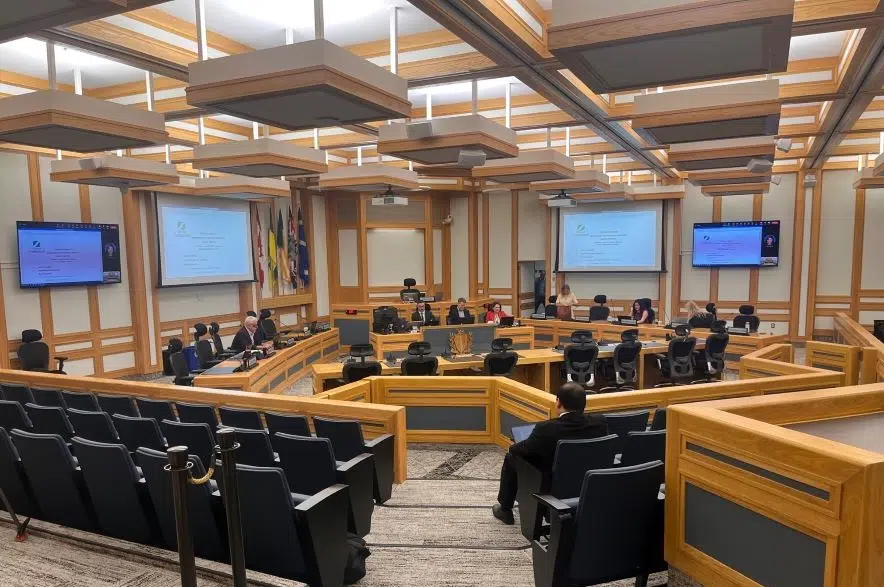The first of the City of Saskatoon’s special budget meetings began Thursday morning with Mayor Charlie Clark calling the process to address a $52.4-million funding gap in 2024 and another $23.2-million gap in 2025 a “very challenging situation.”
If the gap isn’t addressed, Saskatoon could end up with a property tax increase as high as 18 per cent.
“We’re going to do everything we can to not bring in a huge tax increase,” Clark said.
“I’ve seen and I know how hard we’ve worked over the years, between council and administration, to budget in a transparent way, to make good investments in our community, and to make sure that we have a very strong fiscal position.”
Chief financial officer Clae Hack presented councillors with a report that identified “11 pressures” that could potentially reduce the funding gap by around $27.6 million.
Three options were presented in the report, with one option recommended.
“While this option would provide the most significant decrease to the funding gap heading into 2024, it’s important to know that there are impacts to this option,” Hack said.
The recommended option would include reduction to the purchasing power for roadways, Saskatoon Light and Power facilities, and fire apparatus, no base funding for future snow and ice events, reductions to fuel estimates, no increases for base funding for transit replacements, and no phase-ins for the future fire stations or an east side leisure centre, putting pressure on budgets in future years.
Coun. Darren Hill also presented a motion asking administration to take the summer and come back in a few months with a preliminary budget that would be based on a maximum four per cent tax hike in 2024 and in 2025.
Hill said he’s “asking for (administration) to do the hard work and to dig into the operations and the service levels to see where could cut.”
“We don’t have a target. We have nothing,” Hill added.
Coun. Sarina Gersher took exception to Hill’s motion, calling it “out of order,” but Clark disagreed and debate on the motion was allowed to proceed.
“I was hoping that we would be able to build off of the recommendations that administration put forward today, because there was a lot of information that would have really made a meaningful impact for us to start,” said Gersher.
Hack also told council that administration did not plan to bring options forward to the initial meeting with a certain target in mind, though he did provide councillors with information on how much needed to be cut from next year’s budget in order hit a four per cent, six per cent or nine per cent property tax increase.
Hill’s motion was narrowly defeated 6-5, with Clark as the deciding vote.
“We have a number and a wide range of options that are being looked at to address this funding gap, and that 18 per cent is not on the table,” said Clark. “My concern is that if we were to defer now, it … would leave us later in the process scrambling to deal a lot of unanswered questions for the public.”
“With the deferral being defeated, that gives us a mandate to now go through line by line as we initially planned to do,” Gersher said after the meeting.
Additional budget meetings are scheduled for July and August.











